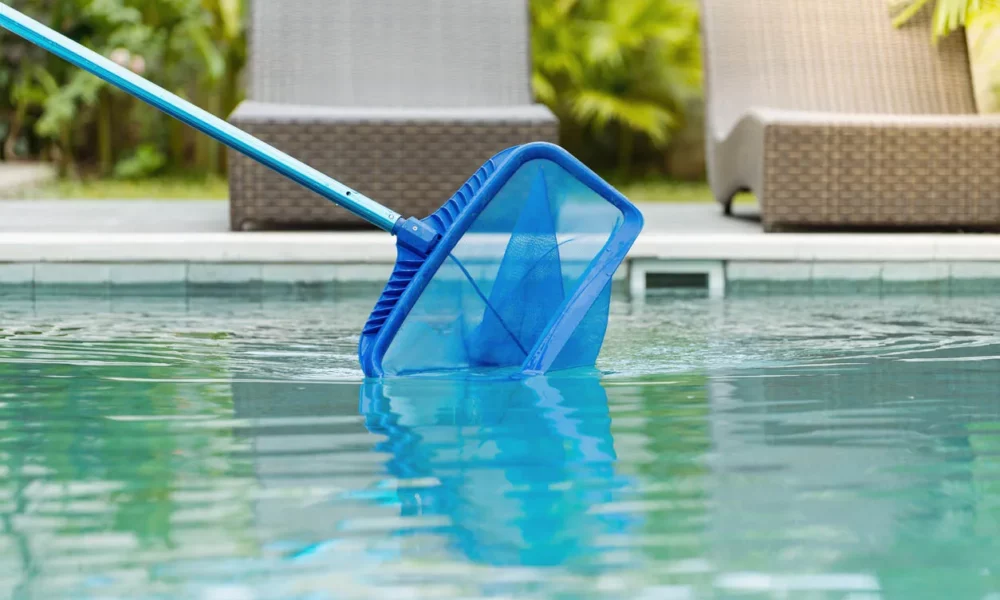Maintaining Your Swimming Pool: Tips for Year-Round Care and Longevity

Maintaining a swimming pool is essential for ensuring its longevity and enjoyment. Whether you are a new pool owner or have had a pool for years, understanding how to care for your pool properly can save you time, money, and frustration. We will explore critical maintenance practices to keep your pool clean, safe, and functional throughout the year. From routine cleaning and water balancing to equipment care and seasonal adjustments by Aquality Construction, we’ll cover everything you need to know for effective pool maintenance.
Routine Cleaning: The Foundation of Pool Maintenance
Routine cleaning is the cornerstone of pool maintenance. Regularly skimming the surface of your pool to remove leaves, insects, and other debris prevents the buildup of contaminants that can cloud the water and clog the filtration system. Vacuuming the pool floor and brushing the walls are equally important. These tasks remove dirt and algae that can accumulate over time, ensuring your pool remains visually appealing and safe for swimming. Skimming the surface daily, vacuuming weekly, and brushing the walls at least once a week is recommended. Consistent cleaning improves water clarity and reduces the strain on your pool’s filtration system, extending its lifespan.
Water Balancing: Essential for Health and Safety
Balancing your pool water is crucial for the health and safety of swimmers and the pool’s longevity. The critical water balance elements are pH, alkalinity, and calcium hardness. Maintaining the pH level between 7.2 and 7.6 ensures the water is neither too acidic nor too alkaline, which can cause skin irritation and damage to pool surfaces and equipment. Alkalinity acts as a buffer for pH, preventing drastic changes, and should be kept between 80 and 120 ppm. Calcium hardness, which should be between 200 and 400 ppm, prevents water from becoming too corrosive or scaling. Regularly testing and adjusting these levels, ideally, once a week, keeps your pool water safe and comfortable for swimmers.
Filtration System: The Heart of Your Pool
The filtration system is the heart of your swimming pool, working tirelessly to remove impurities and maintain clear water. There are three main types of filters: sand, cartridge, and diatomaceous earth (DE). Each type requires different maintenance practices. Sand filters should be backwashed every few weeks to remove trapped dirt, while cartridge filters need to be cleaned every few months by rinsing with a hose or soaking in a filter cleaner. DE filters require the replacement of the DE powder after backwashing.
Additionally, it is essential to regularly check the pressure gauge on your filter system. A rise in pressure indicates that the filter needs cleaning. Maintaining the filtration system ensures efficient water circulation, reduces chemical usage, and prevents costly repairs.
Chemical Treatment: Keeping Water Crystal Clear
Chemical treatment is vital for maintaining crystal-clear pool water and preventing the growth of harmful bacteria and algae. Chlorine is the most common sanitizer used to kill bacteria and oxidize contaminants. Maintaining a chlorine level between 1 and 3 ppm is essential. Alongside chlorine, shock treatments are necessary to address any sudden contaminant increase, such as after a heavy rain or pool party. Shocking the pool once a week with a higher dose of chlorine or a non-chlorine oxidizer helps break down organic waste and maintain water clarity. Algaecides can also be used to prevent algae growth, especially during hot and humid weather. Regular chemical testing and treatment keep the water clean, safe, and inviting.
Seasonal Care: Adjusting to Weather Changes
Seasonal care involves adjusting your pool maintenance routine for weather changes and varying usage patterns. In the summer, pools are used more frequently, requiring more regular cleaning, chemical adjustments, and water level checks due to evaporation. During this time, running the pool pump longer is vital to ensure proper filtration. In contrast, winterizing your pool is essential if you live in a region with freezing temperatures. This process includes lowering the water level, adding winterizing chemicals, and covering the pool to protect it from debris and harsh weather. Proper seasonal care helps prevent damage and reduces the workload when reopening the pool in the spring.
Equipment Maintenance: Ensuring Longevity
Maintaining your pool equipment is crucial for its longevity and efficient operation. This includes the pool pump, heater, and any automated cleaning systems. Regularly inspecting and cleaning the pool pump’s strainer basket and ensuring no leaks or unusual noises can prevent major breakdowns. Heaters should be serviced annually to check for rust, scale buildup, or damaged components. Automated cleaning systems, like robotic cleaners, should be cleaned and stored correctly when not in use. By taking care of your equipment, you extend its lifespan and ensure your pool runs smoothly and efficiently, providing a better swimming experience.
Maintaining a swimming pool requires consistent effort and attention to detail. By following these critical practices—routine cleaning, water balancing, proper filtration, chemical treatment, seasonal adjustments, equipment maintenance, and safety measures—you can ensure that your pool remains a source of enjoyment for years. A well-maintained pool provides a safe and pleasant environment for swimmers and protects your investment, extending the life of your pool and its equipment. Regular care and timely adjustments make all the difference in preserving the quality and longevity of your swimming pool.





